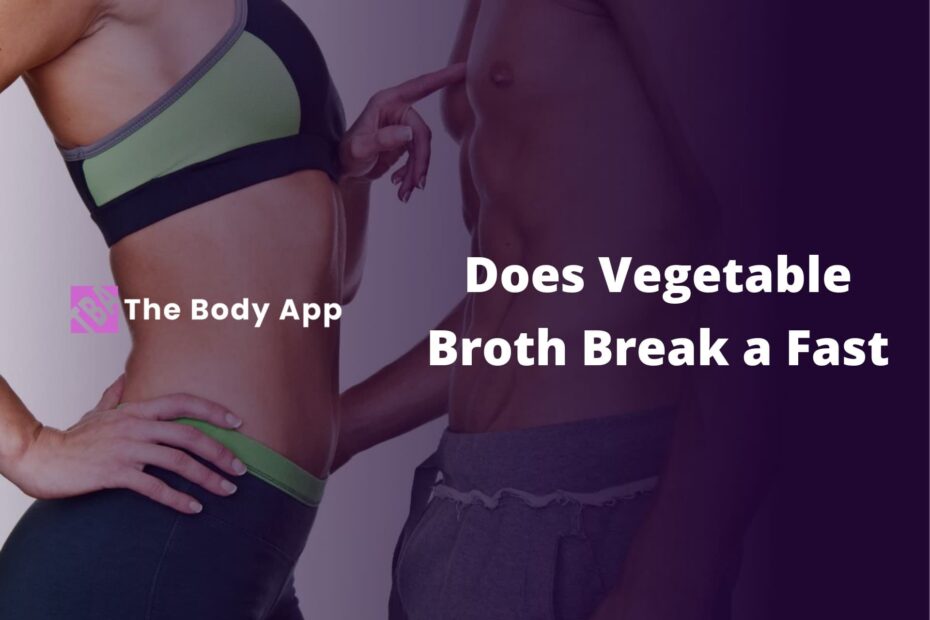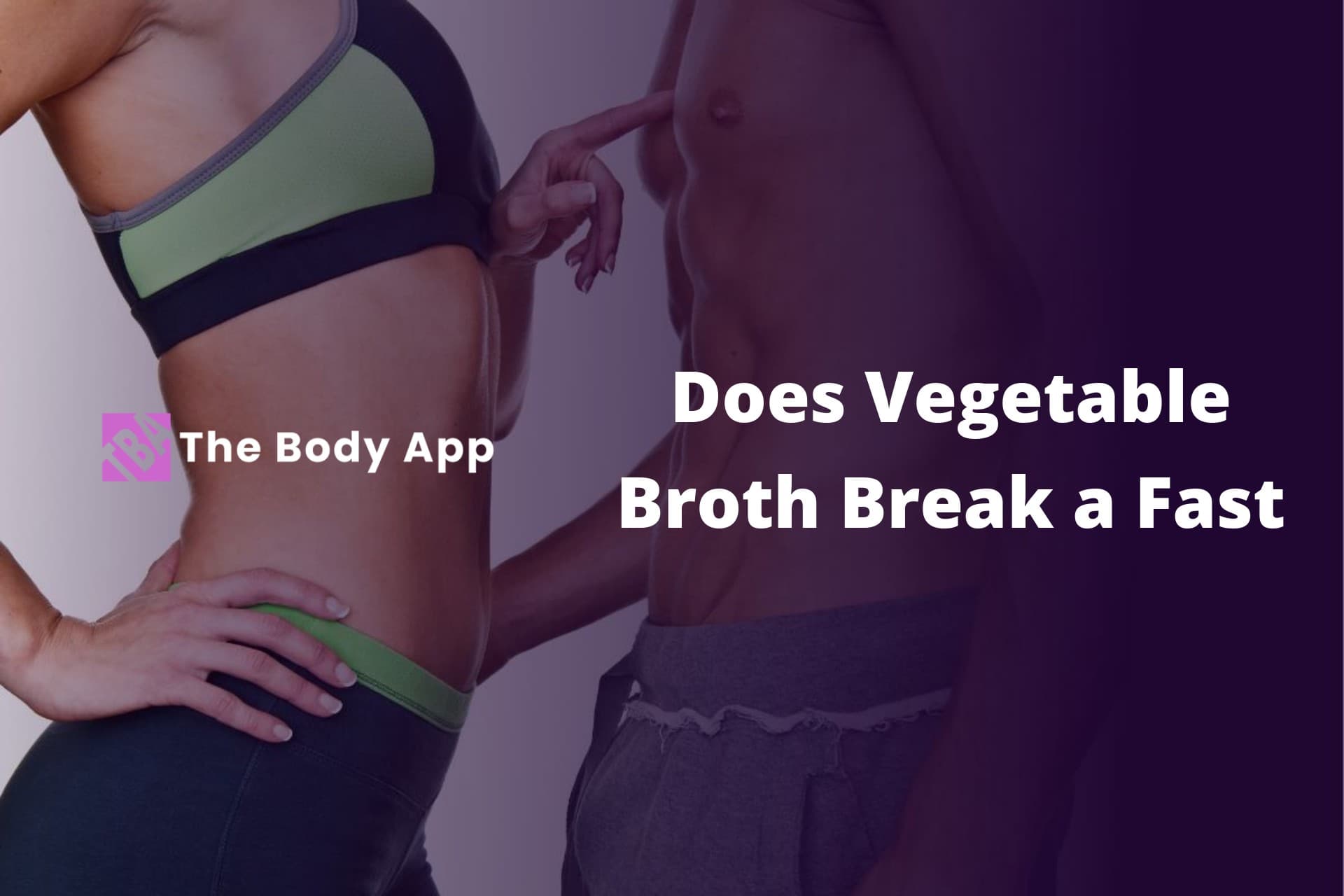Are you curious about whether vegetable broth breaks your fast? Look no further!
In this article, we will delve into the fascinating world of fasting and explore the impact of vegetable broth on your fasting journey.
By understanding the nutritional content of vegetable broth and its effects on insulin levels, autophagy, and ketosis, you’ll gain valuable insights into how it fits into your fasting routine.
Get ready to discover practical tips on incorporating vegetable broth while staying true to your fasting goals.
Understanding the Concept of Fasting
Fasting involves abstaining from consuming food or beverages for a specific period of time. While the idea of voluntarily going without food may seem daunting to some, there are actually many benefits associated with fasting. Understanding these benefits can help you make an informed decision about whether or not fasting is right for you.
One of the key benefits of fasting is weight loss. When you fast, your body starts burning stored fat for energy instead of relying on the calories from food. This can lead to significant weight loss over time. Fasting has also been shown to improve insulin sensitivity, which can be beneficial for those with type 2 diabetes or those at risk for developing it.
Additionally, fasting has been linked to improved brain function and increased longevity. Research suggests that intermittent fasting may enhance cognitive performance and protect against age-related diseases such as Alzheimer’s and Parkinson’s. Some studies have even found that periodic fasting can extend lifespan in certain organisms.
It’s important to note that while there are potential benefits to fasting, it may not be suitable for everyone. Consulting with a healthcare professional before starting any fasting regimen is recommended, especially if you have underlying health conditions or take medication regularly.
Exploring the Nutritional Content of Vegetable Broth
If you’re curious about the nutritional content, you’ll be interested to know that vegetable broth is often packed with vitamins and minerals. Not only does it add flavor to your dishes, but it can also provide several nutritional benefits.
Here are some key nutrients found in vegetable broth:
- Vitamins: Vegetable broth is a good source of various vitamins such as vitamin A, vitamin C, and vitamin K. These vitamins play essential roles in maintaining healthy skin, boosting immunity, and supporting blood clotting.
- Minerals: Vegetable broth contains minerals like potassium, magnesium, and calcium. Potassium helps regulate blood pressure and maintain proper heart function. Magnesium contributes to bone health and muscle function. Calcium supports strong bones and teeth.
- Antioxidants: Many vegetables used to make vegetable broth are rich in antioxidants like beta-carotene and lycopene. These antioxidants help protect cells from damage caused by free radicals.
- Low in Calories: Vegetable broth is generally low in calories compared to other types of broths or stocks. This makes it a suitable choice for those watching their calorie intake.
- Hydration: Consuming vegetable broth can contribute to your daily fluid intake, helping you stay hydrated.
When incorporating vegetable broth into your diet, it’s important to consider the recommended serving size. Typically, a 1-cup serving of vegetable broth provides around 10-15 calories. However, keep in mind that the specific nutritional content may vary depending on the brand or homemade recipe used.
Impact of Vegetable Broth on Insulin Levels
When it comes to the impact of vegetable broth on insulin levels, there are a few key points to consider.
First, it’s important to understand how the body responds to different types of foods and beverages during fasting periods.
Second, research suggests that vegetable broths may have a minimal effect on insulin levels due to their low calorie and carbohydrate content.
However, individual responses may vary, so it’s always best to consult with a healthcare professional or registered dietitian for personalized guidance.
Insulin Response to Broth
While vegetable broth does not contain any significant calories, it can still elicit an insulin response. Insulin is a hormone that helps regulate blood sugar levels and promotes the uptake of nutrients by cells. When you consume vegetable broth, even though it may not provide a substantial amount of calories, your body still recognizes it as food and produces insulin in response.
Here are five important points to consider regarding the insulin response to vegetable broth:
- Vegetable broths typically contain small amounts of carbohydrates, which can stimulate insulin release.
- The overall impact on insulin levels from consuming vegetable broth alone is likely minimal compared to other foods or beverages.
- Everyone’s individual insulin sensitivity varies, so the degree of response may vary between individuals.
- It is important to note that an isolated increase in insulin does not necessarily negate the benefits of fasting or autophagy evaluation.
- If you are following a strict fasting protocol for specific health goals, it might be best to avoid consuming vegetable broth during your fasting period.
Fasting and Broth?
To maintain the benefits of your fast, it’s important to be mindful of any liquids you consume, including broth. While vegetable broth is often considered a low-calorie option that can provide some essential nutrients during fasting, it may not be suitable for everyone.
The main concern is that consuming broth can trigger an insulin response in some individuals, potentially breaking the fasted state. Insulin is a hormone that regulates blood sugar levels and its release can inhibit fat burning.
If your primary goal during fasting is to promote autophagy or weight loss, opting for alternatives like herbal tea or plain water might be more beneficial. However, if you’re fasting for other reasons and find that vegetable broth helps you stay on track without causing adverse effects, it could still be included in moderation.
As always, it’s essential to listen to your body and make choices that align with your goals and overall well-being.
Evaluating the Effects of Vegetable Broth on Autophagy
Evaluating the effects of vegetable broth on autophagy, it’s important to consider its impact on fasting. While vegetable broth is often consumed during fasting periods, there is ongoing debate about whether it breaks a fast or not. Here are some key points to consider:
- Caloric Content: Vegetable broth typically contains very few calories, which can help maintain a state of fasting and promote weight loss.
- Hydration: Vegetable broth can provide hydration during fasting, ensuring you stay hydrated and supporting overall health.
- Electrolyte Balance: Broths often contain essential electrolytes like sodium and potassium, which can help maintain proper balance in the body.
- Digestive Health: Consuming vegetable broth may have benefits for digestive health by providing easily digestible nutrients and soothing the gut.
- Autophagy Potential: Some experts argue that consuming even low-calorie foods like vegetable broth can potentially disrupt autophagy, a cellular process involved in cellular repair and regeneration.
While vegetable broth can be a useful tool during fasting periods for hydration and digestive support, it’s important to note that its impact on autophagy is still under debate. If your primary goal is maximizing autophagy potential during fasting, it might be best to consume only water or other non-caloric beverages.
As always, consulting with a healthcare professional or registered dietitian can provide personalized guidance based on your specific needs and goals.
Examining the Role of Vegetable Broth in Ketosis
When it comes to ketosis, vegetable broth can play a role in supporting your dietary goals.
Vegetable broth is low in carbohydrates and calories, making it a suitable option for those following a ketogenic diet.
Additionally, the phytonutrients found in vegetables used to make the broth can provide essential vitamins and minerals that support overall health while on a ketogenic diet.
However, it’s important to note that excessive consumption of vegetable broth may have an impact on ketosis due to its potential protein content, so moderation is key.
Vegetable Broth and Ketosis
If you’re in ketosis, vegetable broth can help maintain your state. When it comes to weight loss, vegetable broth can be a helpful addition to your diet. Here are some effects of vegetable broth on digestion:
- Hydration: Vegetable broth is rich in water content, which helps keep you hydrated. Proper hydration is essential for maintaining healthy digestion.
- Nutrient absorption: The vitamins and minerals present in vegetable broth aid in the absorption of nutrients from other foods you consume.
- Gut health: Vegetable broth contains fiber that promotes a healthy gut microbiome and supports regular bowel movements.
- Reduced bloating: The warm nature of vegetable broth can help soothe the digestive system and alleviate bloating or discomfort.
- Appetite control: Drinking vegetable broth before meals can help you feel fuller, potentially reducing overeating.
Incorporating vegetable broth into your diet can have positive effects on weight loss and digestion while keeping you in ketosis.
Impact of Broth
You can incorporate broth into your diet to support digestion and enhance nutrient absorption. Broth, whether it’s vegetable or bone broth, can have a positive impact on hydration and metabolism. When you consume broth, it provides your body with fluids that contribute to maintaining proper hydration levels. Additionally, the nutrients found in broth can help support a healthy metabolism.
Here is a table that highlights some of the key impacts of consuming broth:
| Impact on Hydration | Effect on Metabolism |
|---|---|
| Provides fluids | Supports healthy metabolism |
| Helps maintain electrolyte balance | Aids in nutrient absorption |
| Promotes satiety | Assists in weight management |
As you can see, incorporating broth into your diet not only helps keep you hydrated but also supports a healthy metabolism. However, it’s important to note that while broth can be beneficial for overall health and digestion, individual results may vary. It’s always best to consult with a healthcare professional or registered dietitian before making any significant changes to your diet.
Practical Tips for Incorporating Vegetable Broth Into Your Fasting Routine
Adding vegetable broth to your fasting routine can be a practical way to stay nourished and satisfied during your fast. Incorporating fasting into your lifestyle has numerous health benefits, and incorporating vegetable broth can help enhance these benefits.
Here are some practical tips for incorporating vegetable broth into your fasting routine:
- Choose a low-sodium vegetable broth: Opt for a low-sodium option to ensure that you’re not consuming excessive amounts of salt during your fast.
- Drink it warm: Sipping warm vegetable broth can provide comfort and help curb hunger cravings.
- Add spices and herbs: Enhance the flavor of your vegetable broth by adding spices like turmeric or herbs like parsley. This can make it more enjoyable to consume during your fast.
- Use homemade broth if possible: Homemade vegetable broth allows you to control the ingredients and avoid any additives or preservatives that may be present in store-bought options.
- Monitor portion sizes: While vegetable broth can provide nourishment, it’s important to monitor portion sizes and not overconsume, as this may break the fast.
Incorporating vegetable broth into your fasting routine can help keep you satiated while providing essential nutrients. Remember to listen to your body’s signals and adjust accordingly. As always, consult with a healthcare professional before making any significant changes to your diet or fasting routine.
Conclusion
Congratulations! You’ve reached the end of this enlightening journey exploring the impact of vegetable broth on fasting.
From understanding the concept of fasting to evaluating its effects on insulin levels, autophagy, and ketosis, you now possess a comprehensive understanding.
So here’s a twist: despite its nutritional content, incorporating vegetable broth into your fasting routine may break your fast.
Remember to consider your goals and consult with a healthcare professional before making any dietary changes.
Stay curious and continue your quest for optimal health!

